Warning: Some people may find the information in this article disturbing and the images graphic.
Every year, some infants are circumcised. During this surgical procedure, part of the child’s protective penile tissue is removed. This tissue removed from his penis may be sold to companies and institutions seeking the rich human fibroblast cells and other cells it contains. Most people are unaware that for decades, vaccine companies have been using these foreskin cells to research, grow and develop vaccines.
Certain microorganisms used by vaccine companies need living human cells to replicate. The cells within foreskin are being used for this purpose. Foreskin cells can be used to turn a wild-type microorganism found in nature into a genetically modified microorganism for use in vaccines.
Baby foreskins are used to research rubella, varicella and human papillomavirus (HPV) vaccines. They are used to make cytomegalovirus vaccines, which is something pharmaceutical companies have been working on the last few decades. This vaccine is being created using foreskin cells and clinical trials have already begun. The child’s DNA whose foreskin was used to make the vaccine cannot be fully removed from the vaccines prior to administration. Researchers are also using foreskin to create a human telomerase reverse transcriptase (hTERT) immortalized cell line for use in vaccines.
Cells isolated from infant foreskin are preferred because the infant cells have a longer lifespan than those isolated from adult foreskin. The ongoing issue with companies using infant foreskin to develop vaccines and other products is vast; only a small fraction can be discussed here. It is important to research how vaccines are made prior to receiving them, if you want to avoid unwanted contaminants in your body.
Hospitals and Clinics Can Sell Foreskin Removed from Newborns
What we call foreskin is actually part of a whole skin system in both males and females. During the male circumcision procedure, twenty to fifty percent of the skin that protects the baby’s penis is surgically removed, with or without pain medicine. There are occasions where surgical accidents happen and more is removed.
If a hospital or clinic obtained consent to use the foreskin for purposes they felt were desired, the removed foreskin may then be sold at that point, even if the baby didn’t survive.
Surgically removing the foreskin kills at least one baby boy in the United States every two days. Before being circumcised, these infants are already trying to rid their body of the toxic chemicals injected from the synthetic vitamin K shot and hepatitis B vaccine given soon after birth. These circumcision deaths usually occur from an infection that arises, trauma experienced, blood loss, or their tiny lungs burst from intense crying. This is a conservative estimate since circumcision deaths are usually not reported in the United States or elsewhere. [1,2]
Each hospital or clinic determines what can happen to the excised piece of skin. It may be discarded as biological waste, sent home with the parents who want to save it, or it may become the property of the hospital or clinic to further use for what they deem necessary, if a consent form was signed agreeing to this.
How Foreskin Cells Are Being Isolated
After the baby was circumcised, if the goal is to sell the foreskin for profit, it can be preserved and legally sold. Foreskin can also be donated.
Once the foreskin has been obtained by researchers in a lab, it is further processed. The foreskin is laid in a dish and then cut into strips. It is then soaked in an enzymatic solution to help the tissue layers separate. When ready, each strip of foreskin is peeled apart to separate the epidermal top layer from the dermal layer below that. The two layers are put in separate dishes. This is done to isolate specific cells within each layer.
The top epidermal layer of the foreskin contains cells that produce keratin, called keratinocytes. The dermis layer below contains fibroblast cells. It is these keratinocytes and fibroblast cells that are used to research, grow and develop vaccine strains.
A step by step list of this procedure is explained on the Thermo Fisher Scientific web page, titled Isolation, Primary Culture, and Cryopreservation of Human Neonatal Fibroblasts. [3]
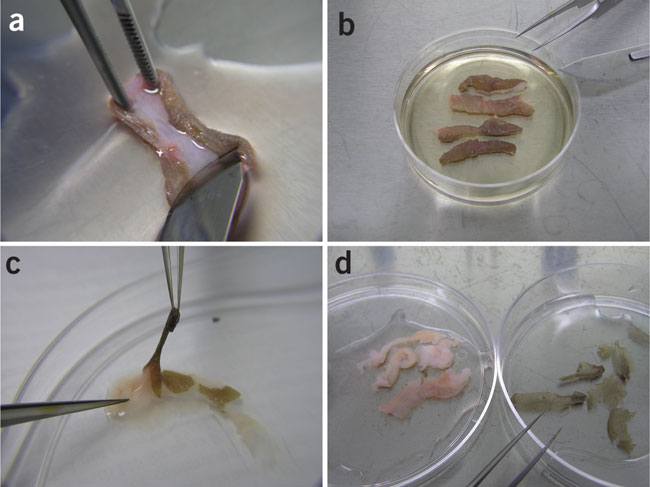
From the publication:
“Isolation and cultivation of human keratinocytes from skin or plucked hair for the generation of induced pluripotent stem cells
Figure 2: Enzymatic isolation of the epidermis and the dermis.(a) Foreskin or other skin sample is placed epidermal side down (in this case, dark pigmented epidermis) and loose connective tissue is scraped away using a scalpel. (b) The tissue is cut into smaller pieces of 4–5 mm width and placed in dispase solution overnight at 4 °C. (c) The next day, the epidermis is peeled off and placed in a second dish in the medium. (d) The end result is one dish with the dermis that can be used for fibroblast isolation and the other dish with the epidermis that can be used for keratinocyte isolation.” [4]
There are other methods to get the foreskin to separate. [5]
Once the specific cells in the foreskin are isolated, the foreskin has been broken down and is not recognizable anymore. The image below represents fibroblast cells isolated form the foreskin of a baby, after being fed a growth mixture that included fetal bovine serum.
Microscopic view of altered foreskin fibroblast cells used for research.
“Skin fibroblasts are cells within the dermis layer of skin which are responsible for generating the extracellular matrix and the connective tissue of the skin. These cells play an important role in wound healing and skin recovery. Human neonatal skin fibroblasts from PrimCells, llc are prepared with the highest standard from foreskin tissue. They retain high proliferating capability and can be cultured for at least 20 doublelings. These cells are your ideal choice for skin related researches.” [6]
Infant Foreskin Cells are Then Cryopreserved and Ready to Order
After further manipulation, the cells are usually kept in a tube and cryopreserved in liquid nitrogen, until sold and used for further research. [7]
“Dr. Tinari estimates that between the surgery and the foreskin’s resale value, each foreskin is worth approximately $100,000.” [8]
Tubes of fibroblast cells derived from infant foreskin are worth a lot of money. One tube of these foreskin fibroblast cells, from a baby aged 14 days or less, is sold for hundreds of dollars per tube. [9,10]
Isolated and frozen human neonatal foreskin keratinocytes containing cancer-causing SV40 monkey viral DNA sequences are being sold for nearly a thousand dollars or more per order, from removed infant foreskin. [11]
Pharmaceutical companies buy these cells. They can take microorganisms and passage them through the foreskin cells using growth mediums made from calf blood and other chemicals, so that they can grow genetically modified vaccine strains. This is done to make new vaccines and to research existing ones. [12,13]
Human neonatal foreskin fibroblast cells for sale.
Cytomegalovirus Vaccine Development Using Foreskin is Underway
There are actually hundreds of vaccines currently being developed; some are being made using foreskin fibroblast cells. [14]
For several decades there have been efforts to create a vaccine for a congenital cytomegalovirus viral infection that can be passed from the mother to her unborn child in utero, if the mother has been infected. Even though a virus has not been proven to be the cause of the infection – it is more likely caused by diet, environmental pollution, vaccines, pesticides and other synthetic chemicals the person came in contact with – researchers somehow assume this infection is caused by a virus and they want a vaccine for it.
A cytomegalovirus (CMV) vaccine being developed using infant foreskins has already entered clinical trials. Foreskin is used to attenuate the vaccine strain, which means the strain in the vaccine itself has been weakened from its original state, to make it less virulent in the vaccine. DNA from the baby boy who owned that foreskin ends up in these vaccines because the DNA cannot be fully removed. [15]
Cytomegalovirus Attenuation Method and Vaccine Patent Information – US 4058598 A
“The attenuation of the C.M.V. strain involves a considerable number of passages in tissue cultures particularly in human fibroblast cells to substantially reduce its pathogenicity but without loss of sufficient immunogenicity and infectivity.”
“The susceptible cell cultures suitable for serial passages according to the present invention include human cell cultures preferably without contaminating viruses or other microorganisms, such as mycoplasma…Primary and secondary human fibroblast cells are especially suitable for the purpose, such as the known embryonic fibroblasts (M.A.F.), foreskin fibroblasts and diploid embryonic lung fibroblast cells…”
“Human cells have been found to be necessary for C.M.V. since the virus is highly species specific and grows well only in human cells. Fibroblast cells are preferred for the purpose…”
“It is advantageous to propagate the virus in more than one of these fibroblast cells. A passage history involving at least 8 passages in each of the above-mentioned types of cultures, i.e. M.A.F., human foreskin fibroblasts, H.E.L. and M.R.C.-5 cells, has been preferred.” [16]
Cytomegalovirus Vaccines and Methods of Production Patent Information – WO 2009049138 A1
“It has been demonstrated in accordance with the present invention that laboratory strains of CMV that have been passaged repeatedly in fibroblasts can be successfully conditioned by propagation on the selected cell line.”
“For example, a CMV strain can be passaged multiple times in fibroblasts, then amplified in epithelial cells and thereafter used to produce a vaccine. It will be appreciated that the CMV can be amplified/propagated for one or more rounds in the selected cell type.” [17]
Cytomegalovirus Vaccines and Methods of Production Patent Information – US 20100285059 A1
“Methods of increasing diversity in cytomegalovirus vaccines through the selection of cell type in which the virus is propagated, and the use of cytomegalovirus produced by those methods in the development of vaccine compositions, are disclosed. Vaccine compositions comprising CMV isolated from epithelial cells are also disclosed.”
“The invention relates generally to the field of vaccine development. More specifically, the invention relates to methods of increasing diversity in cytomegalovirus vaccines through the selection of cell type in which the virus is propagated, and to the use of cytomegalovirus produced by those methods in the development of vaccine compositions.” [18]
Human Telomerase Reverse Transcriptase (hTERT) Immortalized Cell Line, for Use in Vaccines Information
“ATCC human telomerase reverse transcriptase (hTERT) immortalized cell lines represent a breakthrough in cell biology research that combines the in vivo nature of primary cells with the traditional cell line’s ability to survive continuously in vitro.” [19]
Htert-Immortalised Cell Lines, Their Preparation and Use Patent Information – WO 2002016555 A2
“An immortalised cell line is disclosed, which is suitable for use in vaccine production …”
“As described above, primary human fibroblasts have a limited life span. This is therefore a particular problem for scientists working with HCMV. Experimental variations are caused as different laboratories use different cell sources, and fibroblasts change as they accrue population doublings. Stocks of fibroblasts become exhausted, and adventitious agents { eg mycoplasma) may be introduced by using fresh cells (typically human foreskin fibroblasts).”
“It has also been demonstrated that human foreskin fibroblasts immortalised using the human papillomavirus type 16 E6 and E7 oncogenes were able to support efficient virus replication.” [20]
Foreskin Used for Rubella Vaccine Research Information
An excerpt from the 1979 study titled Immunosuppression and Isolation of Rubella Virus from Human Lymphocytes After Vaccination with Two Rubella Vaccines explains how rubella created vaccine strains were passaged through foreskin for research.
“PHA stimulation of lymphocytes infected in vitro with rubella virus vaccine. Lymphocytes from four susceptible individuals were infected in vitro with various doses of rubella virus vaccine, two of them with RA27/3, the other two with HPV77. The vaccine viruses had been passaged twice in tissue culture: RA27/3 in human foreskin fibroblast cells and HPV77 in Vero cells.” [21]
Foreskin Used for HPV Vaccine Research Information
One graphic study, The use of human foreskin cell cultures for isolation of herpesvirus group in the diagnostic laboratory, explains how different foreskins have been used to develop HPV vaccines, using specific types of mice that were severely harmed during this experiment.
“Cell cultures originated from human foreskin (HFS) tissues were used for isolation of viruses from diagnostic specimens. The foreskins were collected in Hank’s balanced salt solution and then processed on the same day by dispersion in trypsin. A week after the trypsin treatment of the tissues, the first cell cultures were ready to use. Continuous subcultures in vitro of the cells gave rise to a colony of cells that multiplied freely in vitro and supported the growth of viruses from the herpes group. In three cases tested in our laboratory in the last 6 months, viruses from the herpes group were isolated on the HES. The cytopathic changes of the HFS cells were observed 5 to 8 days after infection. They were not detected on two other human-origin cell cultures (WI-38 and HEp2) or on primary monkey kidney cells. The viruses isolated from these three cases were cytomegalovirus (CMV) from urine of a 2-week-old baby, a second CMV from a cutaneous lesion of a renal-transplant patient and herpes simplex virus from the eye swab of a young girl. After a few subcultures on the HFS cells, the three viruses produced CPE on the other susceptible human cells. The preparation of HFS cells is easy, the availability of the tissue is high, and the diagnostic value is unquestionable. It is suggested that this tissue and its cell cultures be used more often in diagnostic and research laboratories.” [22, 23]
Foreskin Used for Varicella Vaccine Research Information
Varicella zoster virus (VZV) vaccine studies have also been done using infant foreskin. HFF stands for human foreskin fibroblasts.
One study, Varicella-Zoster Virus Infection of Human Foreskin Fibroblast Cells Results in Atypical Cyclin Expression and Cyclin-Dependent Kinase Activity, states:
“VZV replication is restricted to human and monkey cells, and many cell lines used to propagate the virus are derived from carcinomas in which the cell cycle is perturbed. Thus, primary HFFs were selected for these studies since they become contact inhibited when grown to confluence, which mimics their quiescent state in the dermis, and their cell cycle machinery is regulated normally.” [24]
Other Uses of Infant Foreskin
Researchers have also found ways to manipulate the cells from one baby’s foreskin to grow 250,000 square feet of skin, to make skin grafts for burn victims and diabetic patients.
Foreskin is being used for stem cell research purposes, to make cosmetics, even injectable ones. They are used to replace people’s eyelids and used by oral surgeons to replace the lining of the mouth. The list goes on. Just because researchers have found many uses of the foreskin does not make this acceptable.
It is important to be aware that hospitals and clinics have their own unique circumcision consent form. The fine print can help determine what may happen to the foreskin if it’s removed.
Parents need to do the research and learn what is coming through those vaccine needles. [25, 26]
The Vaccinated Population Is Being Genetically Modified
Vaccines made using cell cultures are contaminated, including those made with human foreskin. These cell cultures are considered hazardous and can spread infectious diseases. Therefore, they shouldn’t be injected or given orally to us if the goal is to keep the population healthy. Cells from all of the once-living biological sources used to make these vaccines can end up in the final product, which ends up in the vaccinated population. [27]
Conclusion
Vaccine companies have regularly used blood and body parts from killed cows, dogs, worms, mice, chickens, human babies, monkeys, guinea pigs, rabbits, hamsters, rats, etc., to make these vaccines, so using foreskin from newborn babies may not surprise some. For many, it is appalling. [28]
Circumcisions fuel multi-billion dollar industries. If you see neonatal foreskin for sale, which is very easy to find on the internet, remember that these newborn children didn’t consent to being circumcised and they didn’t consent for their foreskin to be sold, used for research purposes, or to be injected into the people via vaccines. [29]
In our current time, more parents are researching the purpose of the foreskin and vaccines, leaving their babies naturally the way they were born, intact and vaccine-free.
Augustina Ursino has spent many years researching vaccine ingredients and vaccine reactions. Once she became aware of so many children and adults dying after vaccinations and that most people that survived them are living with vaccine injuries, this impelled her to write these stories. She earned a BS in Marine Biology, focusing on conservation biology and realized it didn’t make sense to inject life forms with the ingredients used in vaccines, under the guise of keeping us healthy. Augustina now writes for VacTruth and continues to help families negatively affected from vaccines.
Republished with permission. Read the full article at Vactruth.com.
References:
- http://www.drmomma.org/2010/05/death-from-circumcision.html
- http://www.cirp.org/library/death/
- https://www.thermofisher.com…neonatal-fibroblasts.html
- https://pdfs.semanticscholar.org…pdf
- https://www.ncbi.nlm.nih.gov/pmc/articles/PMC4467300/
- http://www.primcells.com…Human-SF-neonatal.pdf
- https://www.systembio.com/downloads…pdf
- https://thetyee.ca/News/2006/07/25/Circumcision/
- http://www.foreskin.org/f4sale.htm
- https://www.thermofisher.com/order/catalog/product/C0045C
- https://www.atcc.org/Products..Foreskin_Keratinocytes/CRL-4048.aspx
- http://vaxxter.com/the_disgusting_cow_stuff_in_vaccines/
- https://vactruth.com/2013/10/28/7-disgusting-ingredients/
- http://phrma-docs…development-drug-list-vaccines.pdf
- http://www.clinicalmicrobiologyandinfection.com…
- http://www.google.sr/patents/US4058598
- http://www.google.sr/patents/WO2009049138A1?cl=en
- https://www.google.com/patents/US20100285059
- https://www.atcc.org/en/Products/Cells…
- https://www.google.com/patents/WO2002016555A2?cl=en
- https://www.ncbi.nlm.nih.gov/pmc/articles…pdf
- https://www.ncbi.nlm.nih.gov/pubmed/180793
- http://jvi.asm.org/content/69/4/2716.full.pdf
- https://www.ncbi.nlm.nih.gov/pmc/articles/PMC1472175/
- http://vaccinechoicecanada.com/vaccine-ingredients…
- https://www.cdc.gov/vaccines/pubs/pinkbook/downloads…pdf
- http://www.cellprolabs.com/sites/default/files/downloads…pdf
- https://www.fda.gov/ohrms/dockets…pdf
- https://www.atcc.org/products/all/SCRC-1041.aspx
Leaving a lucrative career as a nephrologist (kidney doctor), Dr. Suzanne Humphries is now free to actually help cure people.
In this autobiography she explains why good doctors are constrained within the current corrupt medical system from practicing real, ethical medicine.
One of the sane voices when it comes to examining the science behind modern-day vaccines, no pro-vaccine extremist doctors have ever dared to debate her in public.
Medical Doctors Opposed to Forced Vaccinations – Should Their Views be Silenced?
One of the biggest myths being propagated in the compliant mainstream media today is that doctors are either pro-vaccine or anti-vaccine, and that the anti-vaccine doctors are all “quacks.”
However, nothing could be further from the truth in the vaccine debate. Doctors are not unified at all on their positions regarding “the science” of vaccines, nor are they unified in the position of removing informed consent to a medical procedure like vaccines.
The two most extreme positions are those doctors who are 100% against vaccines and do not administer them at all, and those doctors that believe that ALL vaccines are safe and effective for ALL people, ALL the time, by force if necessary.
Very few doctors fall into either of these two extremist positions, and yet it is the extreme pro-vaccine position that is presented by the U.S. Government and mainstream media as being the dominant position of the medical field.
In between these two extreme views, however, is where the vast majority of doctors practicing today would probably categorize their position. Many doctors who consider themselves “pro-vaccine,” for example, do not believe that every single vaccine is appropriate for every single individual.
Many doctors recommend a “delayed” vaccine schedule for some patients, and not always the recommended one-size-fits-all CDC childhood schedule. Other doctors choose to recommend vaccines based on the actual science and merit of each vaccine, recommending some, while determining that others are not worth the risk for children, such as the suspect seasonal flu shot.
These doctors who do not hold extreme positions would be opposed to government-mandated vaccinations and the removal of all parental exemptions.
In this article, I am going to summarize the many doctors today who do not take the most extremist pro-vaccine position, which is probably not held by very many doctors at all, in spite of what the pharmaceutical industry, the federal government, and the mainstream media would like the public to believe.





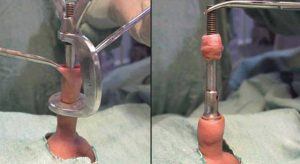

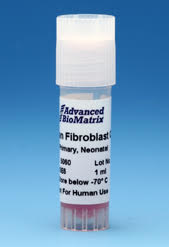

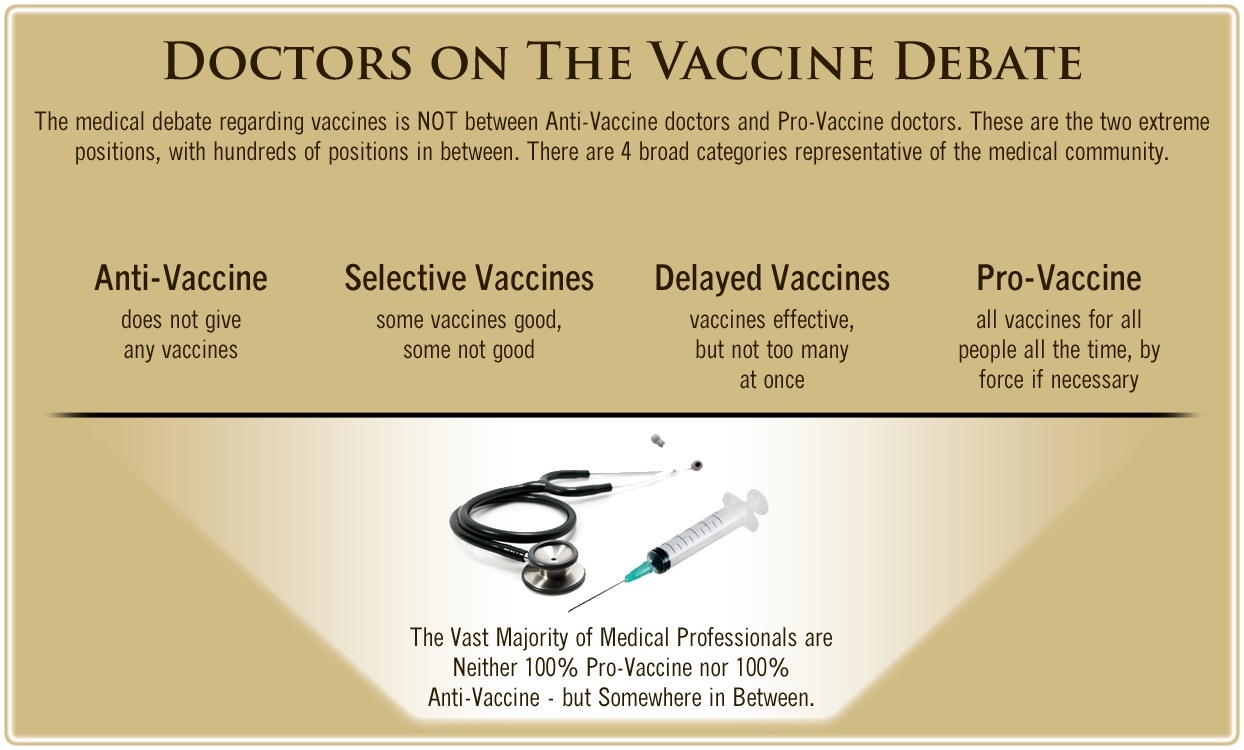
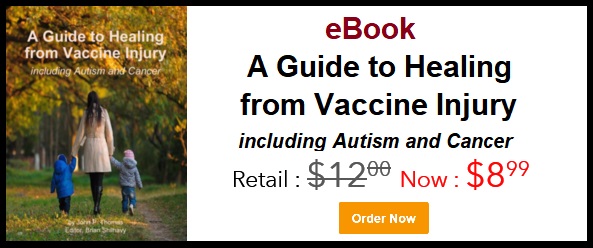
Leave a Reply